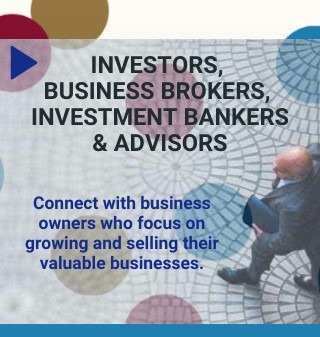When an asset has a grossly inflated price, it is by definition an asset bubble. Does this apply to many small businesses in the US? Probably yes, in my opinion. Most small businesses have a balance sheet listing some assets; therefore they are subject to being part of a bubble. There is an estimated $10 Trillion in private business equity in the US, largely in the hands of the Baby Boomer generation, according to research by the Exit Planning Institute. If there is a large market of assets, but not enough buyers, that is what creates the potential for a bubble. What I am not sure of is whether this situation will burst like a bubble and cause the next financial crisis, or if this is more like a balloon with a slow leak, thereby creating a drag on the US economy for many years.
Where’s the Crisis?
I have been reading for some time about a looming “crisis” of Baby Boomer business owners needing to sell their businesses to retire, seemingly en masse. One book written by Wayne Vanwyck, an entrepreneur who has built and sold a few businesses, is titled “The Business Transition Crisis”. There have been articles about a “Baby Boomer Tsunami” of businesses for sale. For business owners to counter this, many books and articles recommend common themes of “building value” and “thinking like a shareholder”. All valid points, but I have yet to see evidence of anything “moving the needle” for such owners to take much action. So what’s missing?
“Beat the Exit Bubble”
This recent book by Tensie Homan and Dan Meyer offers a slightly different take. Homan and Meyer had long careers in corporate development, i.e., they helped their company buy other companies. Their business exit strategy approach is to ask owners to think and act as BUYERS, not SELLERS, of their businesses.
Shifting your Context
I believe it was Albert Einstein who said that, to solve a problem, you can’t use the same thinking you used to create it. If a business owner thinks like a buyer, he or she will have shifted their context, or way of thinking. As former buyers of businesses, Homan and Meyer bring context to the conversation. I am thinking it’s what business owners (potential sellers) need to hear. Stop thinking like sellers, and start thinking like buyers. But what if you don’t want to sell? Or what if you think your kids (or employees) will take it over? Guess what, they are buyers too, so the advice is still relevant, even if they don’t pay you for it. Think about that for a moment, if your kids (or employees) are unwilling to use their capital, or borrow capital to pay you for it, then that means your business may be not worth much. As buyers, they just said the value of your business to them is ZERO. Ouch, that’s got to hurt.
How many will go dark?
I recently listened to a webinar that quoted a survey of business owners by PricewaterhouseCoopers, reporting that 40% of business owners EXPECTED to CLOSE their business when they retired. If so, that means millions of mom and pop businesses will go dark. I have also read that 80%of businesses that get listed for sale end up never selling. That means millions more businesses going dark.
Why I am optimistic
After reading this, I am sure a lot of M&A Advisors and business owners may be heading to a bar, or a bridge. Don’t do it. Here’s why. Many businesses were started by Baby Boomers who were simply good at “something”, and then struck out on their own. They were also very optimistic. I think that the Millennial generation will come to the rescue. Many are struggling to find jobs today, especially in corporate America, so they are turning to entrepreneurship. Millennials number 80 million in the US. They are all under age 34. That is a potentially rich source of buyers. It is true that many are handicapped with student debt (and some still live at home), but they are also extremely optimistic about themselves. Optimism is a requirement for all successful entrepreneurs. (I am a parent of two Millennials – so I know where of I speak).
What can an owner do?
I suggest taking a different tack on the “think like a buyer” mindset – instead, think like a Millennial buyer. Find out what they eat, where they shop, what they read, what makes their heart soar, what makes them passionate about something. Ask yourself how your business could appeal to them. If you do, you may not only grow your business in the short term, but one of your new customers may well become your new buyer. That would be a very happy ending to this story indeed.













Paul
Great perspective. As an Investment Banker and serial entrepreneur you advice is right on!
Thanks for sharing.
The usual approach to the “Exit Bubble” holds up to statistical analysis but not necessarily the real world of buying and selling small businesses. The supply of small businesses for sale doesn’t have much effect on the price of the business. In our practice we might have 5 of one type of business for sale but the fact we have 5 doesn’t effect how we price any individual business. What drives the value of a small business is 1) the emotional attractiveness of the business (i.e., will a new owner be proud to tell his neighbors – example – septic tank cleaning businesses will have a lower relative value than an online sporting goods company even at the same sales and profit metrics) 2) What can be financed? Two exact same businesses but one has good accounting and the other doesn’t, the biz with better accounting will sell for more. etc. There are 8 other factors, none of which are “how many of these kinds of businesses for sale”.
If you ask a typical business owner when they plan to exit their business the baby boomers will respond – In about 5 years – and if you ask them 5 years later the answer will be the same.. They know it takes time to prepare and they have not started. Thus most surveys predicted a mass exodus and it has not happened. I am noticing, however, a marked increase in the number of owners coming to us for assistance in selling their businesses and the growth in Businesses for Sale will continue for some time. 35% of businesses are owned by people 65 years of age or older and many are owned by baby boomers approaching 65. The average business owner retires at 71 years of age so we will see an increasing number of owners wanting to retire. The good news is that there are many more buyers than sellers. With large companies shrinking – downsizing, right sizing, contracting out, etc. there is a growing number of 40+ year old’s wanting to acquire a successful business. The challenge going forward will be financing their acquisitions. Business sellers are going to be forced to finance an increasing portion of the transaction in order to retire and buyers will be more selective given increased choice so business sellers will have to address the value drives to position their business to be attractive to a more discerning market.
Paul,
Great article. I find that most business buyers are not Millennials but rather seasoned business people in their 40’s or early 50’s. Some of these own related businesses, others want to be their own boss and not be dependent on someone else. Most have reasonable savings and are financeable.
Paul and Holly,
I don’t believe the Exit Bubble, which would theoretically drive selling prices down for exiting baby boomer businesses, will ever materialize.
I base my opinion on the fact that most businesses are not saleable because of lack of preparation by business owners for their ultimate exit from the business.
If all businesses were saleable, yes, there would be a bubble. But with only about 20 – 30% of businesses being sold, that bubble is unlikely to occur until baby boomer business owners realize the need to plan for their business exit.
The buyer demand for good, saleable businesses, that are appropriately priced, far exceeds the supply of those businesses. I don’t see that changing in the next 10 – 15 years because it is so difficult to reach business owners with the message “You must plan for your business exit.”
As professionals, all we can do is to continue to try various methods to reach business owners with one of the most important messages they need to hear to secure their financial future. Unfortunately, most are not listening!
Hi Jim,
Thank you for your insight. The inability to sell a business is a big problem and it is not limited to main street businesses in my opinion. Unfortunately, I meet business owners with businesses of all sizes who struggle to sell their business.
As professionals working with business owners to develop an exit plan, exit strategy, succession and or transition plan (or whatever you want to call it!), we have great responsibility. It starts with education.
I thank you for sharing what we are doing here Jim… you have been a great supporter. Ultimately, I believe we all can make a difference for business owners!
All the best!
Paul – Great article and thanks for the insightful discussion about the Exit Bubble®. I definitely agree that Millennials have a lot of optimism, energy and entrepreneurial tendencies, which should make them the ideal candidates for buying the baby boomers’ businesses. And if baby boomers have the time and ability to make their businesses more attractive to Millennials, it’s a win-win situation for everyone. The challenge is that many of the baby boomers own businesses that are more traditional (manufacturing, auto shops, dry cleaners) and may not be the type of businesses that Millennials are interested in owning. Combine that with the difficulties in finding financing to buy those businesses, and Millennials who want to be entrepreneurs may decide to start their own businesses in industries that don’t require significant start-up funding (e.g., technology-based businesses) instead of buying an existing business. Regardless of who you believe will take over your business or how you want to exit your business, we can all agree on one thing – it’s never too early to start planning for what’s next for you!
Isn’t it the OPPOSITE of a bubble, when you have, as you say, “a large market of assets, but not enough buyers”? That drives valuation down. That is why you are NOT seeing this oft foretold ramp up of baby boomer businesses being sold. Business owners can hold on for 3-5 years and earn the same as what their business valuation is, and still have the business to sell!
In this zero growth economy for as far as the eye can see, one strategy for retiring business owners is not to sell outright but to bring a millennial into the company to learn the business and take it over after 3-5 years. The seller gets the earnings less the millennial’s salary for those years, plus some earnout formula after that!
thanks!
Hi Paul,
Thank you for sharing your thoughtful post with business owners. I was laughing out loud about heading to a bar or a bridge… we have a bar in our town located at the end of a bridge!
All joking aside, you make great points in your post. I have two Millennial children and find they are very optimistic and resourceful. One is already an entrepreneur!
All the best to you!